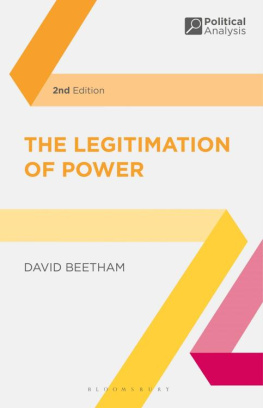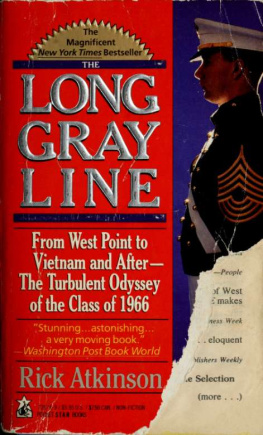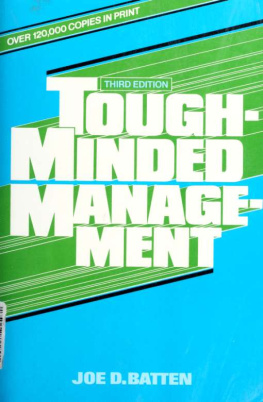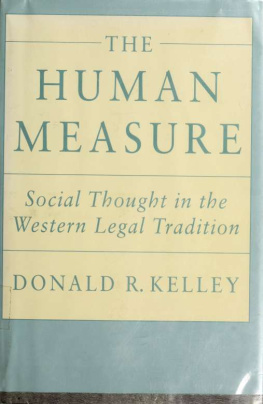Beetham - Bureaucracy
Here you can read online Beetham - Bureaucracy full text of the book (entire story) in english for free. Download pdf and epub, get meaning, cover and reviews about this ebook. year: 1987, publisher: Minneapolis : University of Minnesota Press, genre: Politics. Description of the work, (preface) as well as reviews are available. Best literature library LitArk.com created for fans of good reading and offers a wide selection of genres:
Romance novel
Science fiction
Adventure
Detective
Science
History
Home and family
Prose
Art
Politics
Computer
Non-fiction
Religion
Business
Children
Humor
Choose a favorite category and find really read worthwhile books. Enjoy immersion in the world of imagination, feel the emotions of the characters or learn something new for yourself, make an fascinating discovery.
Bureaucracy: summary, description and annotation
We offer to read an annotation, description, summary or preface (depends on what the author of the book "Bureaucracy" wrote himself). If you haven't found the necessary information about the book — write in the comments, we will try to find it.
Bureaucracy — read online for free the complete book (whole text) full work
Below is the text of the book, divided by pages. System saving the place of the last page read, allows you to conveniently read the book "Bureaucracy" online for free, without having to search again every time where you left off. Put a bookmark, and you can go to the page where you finished reading at any time.
Font size:
Interval:
Bookmark:

Beetham, David
This book was produced in EPUB format by the Internet Archive.
The book pages were scanned and converted to EPUB format automatically. This process relies on optical character recognition, and is somewhat susceptible to errors. The book may not offer the correct reading sequence, and there may be weird characters, non-words, and incorrect guesses at structure. Some page numbers and headers or footers may remain from the scanned page. The process which identifies images might have found stray marks on the page which are not actually images from the book. The hidden page numbering which may be available to your ereader corresponds to the numbered pages in the print edition, but is not an exact match; page numbers will increment at the same rate as the corresponding print edition, but we may have started numbering before the print book's visible page numbers. The Internet Archive is working to improve the scanning process and resulting books, but in the meantime, we hope that this book will be useful to you.
The Internet Archive was founded in 1996 to build an Internet library and to promote universal access to all knowledge. The Archive's purposes include offering permanent access for researchers, historians, scholars, people with disabilities, and the general public to historical collections that exist in digital format. The Internet Archive includes texts, audio, moving images, and software as well as archived web pages, and provides specialized services for information access for the blind and other persons with disabilities.
Created with abbyy2epub (v.1.7.6)
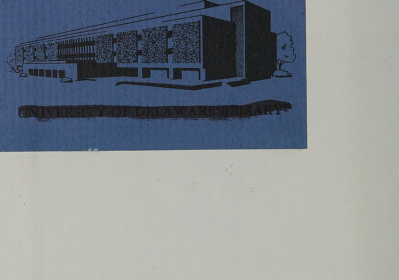
.r cRtwt

Series Editor: Frank Parkin Magdalen College, Oxford
Published Titles
Liberalism | John Gray |
Ideology | David McLellan |
Conservatism | Robert Nisbet |
Race and Ethnicity | John Rex |
Bureaucracy | David Beetham |
Socialism | Bernard Crick |
Forthcoming Titles
Democracy | Anthony Arblaster |
Power | Peter Bachrach |
Utopianism | Krishan Kumar |
Class | Steven Lukes |
Gender | Mary McIntosh |
Property Status | Alan Ryan Bryan Turner |
Status
*
OPEN UNIVERSITY PRESS
Mi/ton Keynes
Open University Press
Open University Educational Enterprises Limited 12 Cofferidge Close Stony Stratford
Milton Keynes MK11 1BY, England
First published 1987
Copyright 1987 David Beetham
All rights reserved. No part of this work may be reproduced in any form by mimeograph or by any other means, without premission in writing from the publisher.
British Library Cataloguing in Publication Data
Beetham, David
Bureaucracy,(Concepts in the social sciences). 1. Bureaucracy 2. Sociology I. Title II. Series 302.3'5 JF1351
ISBN 0-335-15372-0 TT
Typeset by Quadra Associates Limited, Oxford
Printed by J, W. Arrowsmith Ltd., Bristol, England

Preface vii
Introduction 1
1 Models of Bureaucracy 9
Bureaucracy and administrative efficiency 11
The sociology of organization 11
Political economy 24
Public administration 33
Overview 43
Bureaucracy and policy formation 47
Conclusion 53
2 Theories of Bureaucratic Power 56
Weberian political sociology 57
The irreversible expansion of bureaucracy 58
The socialist illusion 62
The theory of leadership democracy 67
Marxist political economy 71
Capitalism and bureaucracy 72
Bureaucratic degeneration of the proletarian
revolution 80
Beyond bureaucracy 87
Conclusion 92
3 Bureaucracy and Democratic Theory 97
Democracy and administrative efficiency 103
Democracy and bureaucratic power 111
Conclusion 119
Further Reading 124
Bibliography 127
Index 134
Only someone who has rashly invited a computer to print out a complete list of titles on bureaucracy will be fully aware how much paper has been consumed in discussing the subject, rivalling in sheer volume even the output of bureaucracy itself. Why should any more be added to the pile? This books chief claim to distinction is that it is the shortest one to date on the subject. Where so much is written, and so few resources are available to purchase it, brevity must be the cardinal virtue, and cheapness the most powerful attraction. My debt to the vast literature will be obvious. More personal debts are due to my family and to that supreme practitioner of the arts of the bureau, Jeanne Bellovics.
David Beetham


'
Bureaucracy is something we all love to hate. It presents simultaneously the contradictory images of bungling inefficiency and threatening power. Incompetence, red tape and feather-bedding on the one side; manipulation, obstructionism and Byzantine intrigue on the other: there is almost no evil that has not at some point been debited to its account. Bureaucracy has the rare distinction of being anathematized across the political spectrum. The Right seeks to limit it in the name of the free market; the Centre to reform it in the name of openness and accountability; the Left to replace it in the name of participation and self-management. Yet it displays an impressive capacity to resist all such encroachments. The dictatorship of the official is on the advance, wrote Max Weber, bureaucracys most distinguished theoretician. This was, he argued, because of its unique capacity to handle the complex administrative tasks of a mass industrial society. Necessary, but persistently problematic: this is the paradox with which bureaucracy seems to confront us.
But what exactly is bureaucracy? The student whose interest is aroused by declamatory opening paragraphs like the above tends to be quickly thrown into a state of confusion as he or she penetrates deeper into the subject. The confusion arises from the many different meanings that have been assigned to the term bureaucracy, of which the following is by no means an exhaustive list: rule by officials, a system of professional administration, organizational inefficiency, public administration, a non-market institution, undemocratic organization. In the face of this variety of
usages, writers on bureaucracy tend to adopt one of two definitional strategies. The first is a prescriptive approach; they declare confidently that bureaucracy really means public administration, or organizational inefficiency, or whatever, as the case may be. This approach avoids confusion, but only so long as the student does not read anyone elses work. The second approach is a more descriptive and agnostic one, whereby the writer explores the very different meanings that have been given to the term, and concludes, perhaps regretfully, that there is really no such thing as bureaucracy at all: only a cluster of quite different phenomena, tenuously related to one another, to which a common name has misleadingly become attached. This approach certainly helps sort out the confusion, but only at the expense of dissolving bureaucracy as a unified subject of enquiry. At this point the student may feel a bit let down: does bureaucracy, then, not really exist after all?
Next pageFont size:
Interval:
Bookmark:
Similar books «Bureaucracy»
Look at similar books to Bureaucracy. We have selected literature similar in name and meaning in the hope of providing readers with more options to find new, interesting, not yet read works.
Discussion, reviews of the book Bureaucracy and just readers' own opinions. Leave your comments, write what you think about the work, its meaning or the main characters. Specify what exactly you liked and what you didn't like, and why you think so.




